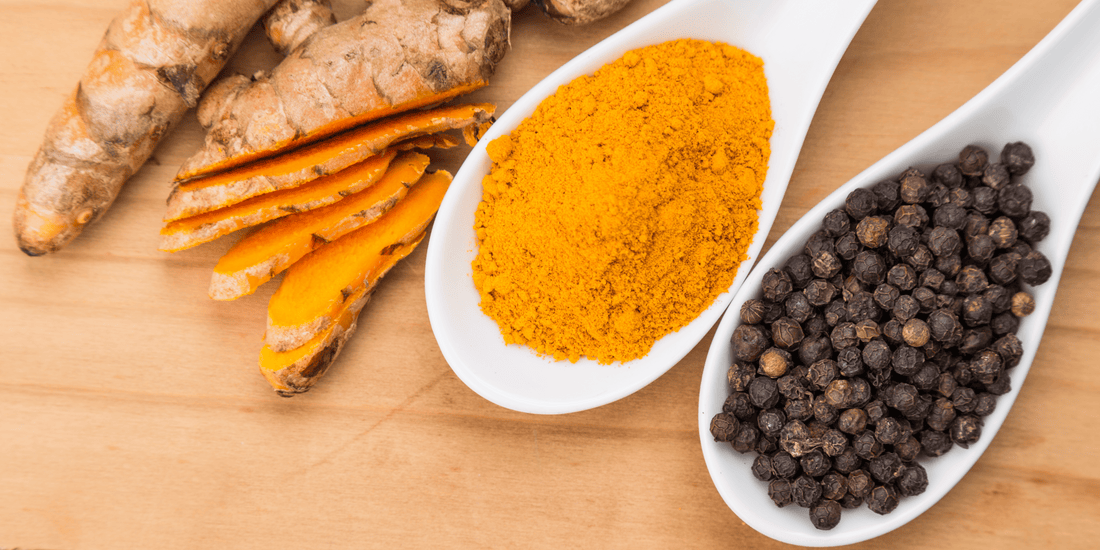
Nutrient Synergy: Why Nutrients Work Better Together
When it comes to nutrition, the spotlight often falls on single “hero” nutrients - Vitamin C for immunity, Iron for energy, Omega-3s for heart health. But the truth is, nutrients rarely work in isolation. Inside the body, they interact, support, and sometimes even compete with one another. This interplay is called nutrient synergy, and it’s one of the most important (and often overlooked) concepts in nutrition.
Simply put: nutrient synergy means certain vitamins, minerals, and compounds are more effective when taken together; enhancing absorption, activation, or overall benefit. Understanding these pairings can help you make smarter choices with supplements and in your daily diet.
How Nutrient Synergy Works
Nutrient synergy happens in a few key ways:
- Absorption Boost: one nutrient increases how much of another the body can absorb.
- Activation Support: a vitamin or mineral acts as a cofactor, helping another nutrient perform its role.
- Protective Partnerships: some nutrients help stabilise or recycle others, preventing them from being wasted.
Examples of Nutrient Synergy
Here are some of the most useful, evidence-backed pairings:
1. Vitamin D and Calcium
- Vitamin D enhances calcium absorption in the gut, which is critical for bone strength.
- Without enough Vitamin D, much of the calcium from food or supplements simply passes through unused.
2. Iron and Vitamin C
- Vitamin C transforms non-heme iron (from plant sources like beans and leafy greens) into a more absorbable form.
- Pair spinach or lentils with a squeeze of lemon, or take an iron supplement alongside orange juice.
3. Magnesium and Vitamin D
- Magnesium is a cofactor in Vitamin D metabolism, meaning it’s needed for the body to convert Vitamin D into its active form.
- This is one reason people low in magnesium may struggle to raise their Vitamin D levels, even with supplementation.
4. B Vitamins (B6, B12, Folate)
- These three work together in methylation pathways — critical processes for energy production, brain health, and DNA repair.
- Taking one without the others can leave gaps in how effectively the body uses them.
5. Omega-3s and Antioxidants (Vitamin E)
- Omega-3 fatty acids are prone to oxidation. Antioxidants like Vitamin E protect them, helping preserve their beneficial effects in the body.
| Nutrient Pair | How They Work Together | Food Example | Supplement Note |
|---|---|---|---|
| Vitamin D + Calcium | Vitamin D boosts calcium absorption for bone health. | Salmon + leafy greens | Often combined in bone-support formulas. |
| Iron + Vitamin C | Vitamin C enhances absorption of plant-based iron. | Spinach + lemon juice | Pair iron supplements with orange juice, not dairy. |
| Magnesium + Vitamin D | Magnesium helps activate Vitamin D into usable form. | Pumpkin seeds + oily fish | Magnesium deficiency can blunt Vitamin D effects. |
| B6 + B12 + Folate | Work together in energy metabolism and DNA repair. | Eggs + leafy greens | Best in a B-complex rather than single dosing. |
| Omega-3 + Vitamin E | Vitamin E protects Omega-3s from oxidation. | Mackerel + sunflower seeds | Fish oil often paired with Vitamin E in formulas. |
| Turmeric (Curcumin) + Black Pepper | Piperine in pepper boosts curcumin absorption 2000%. | Curry with turmeric + black pepper | Look for curcumin supplements with piperine. |
Supplements and Synergy
When supplementing, nutrient synergy is worth considering:
- Combination formulas (like a B-complex or calcium + vitamin D blend) are often designed with these synergies in mind.
- Single nutrient megadoses can sometimes cause imbalances. For example, too much zinc without copper can deplete the latter.
- Timing matters – Iron and calcium compete for absorption, so it’s often best not to take them together.
Nutrient Synergy in Food
The good news? Nature has already done a lot of this work for us. Whole foods often come with built-in synergies:
- Tomatoes + Olive Oil → Healthy fats boost absorption of lycopene (a powerful antioxidant).
- Turmeric + Black Pepper → Piperine in pepper enhances curcumin absorption by up to 2000%.
- Leafy Greens + Citrus → Vitamin C in citrus helps absorb the iron in greens.
- Oily Fish + Leafy Vegetables → Omega-3s and antioxidants work hand in hand for heart and brain health.
This is why varied, balanced diets often outperform isolated supplements in the long run.
Smarter Together
At Yvidét, we believe in evidence-backed wellness that optimises, not overwhelms. Nutrient synergy is one more way to make your health choices smarter, simpler, and more effective.
